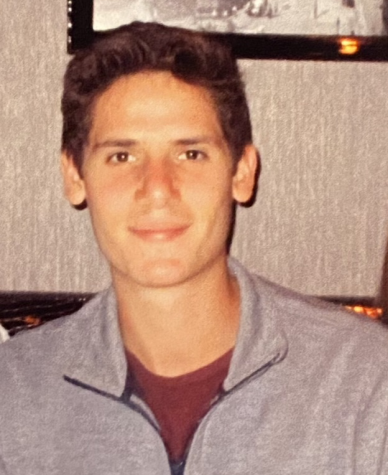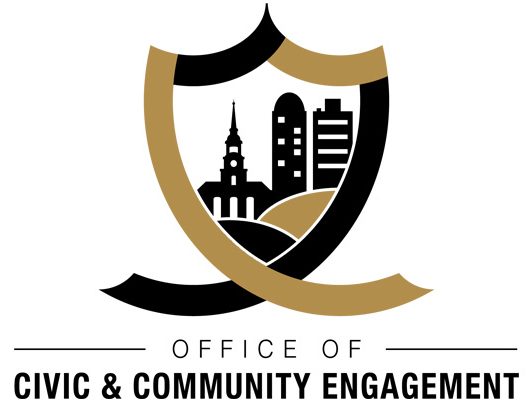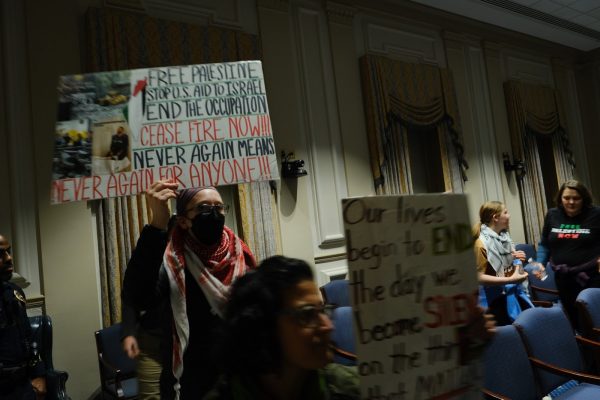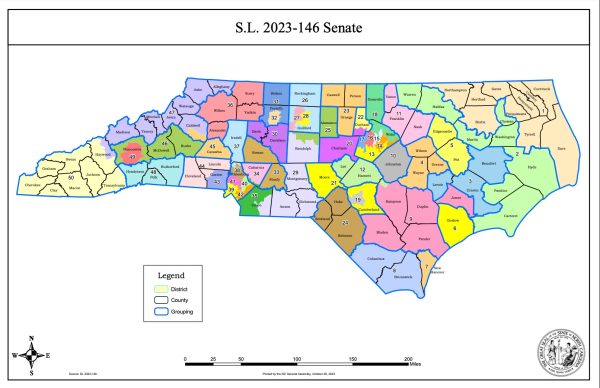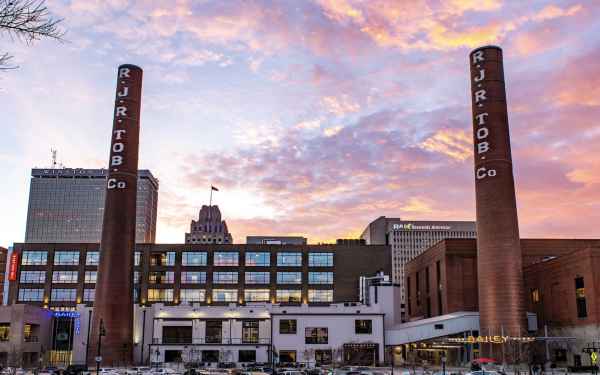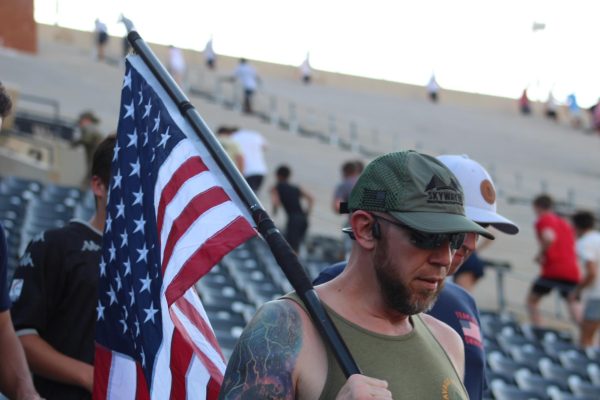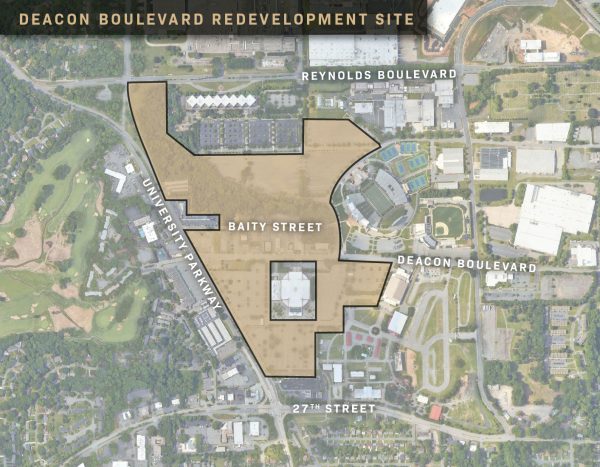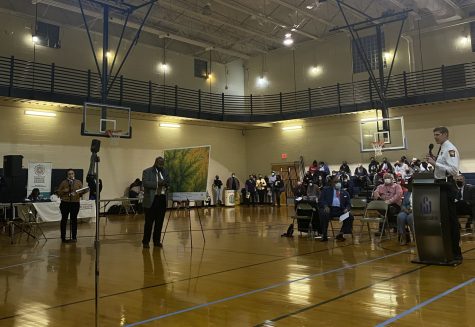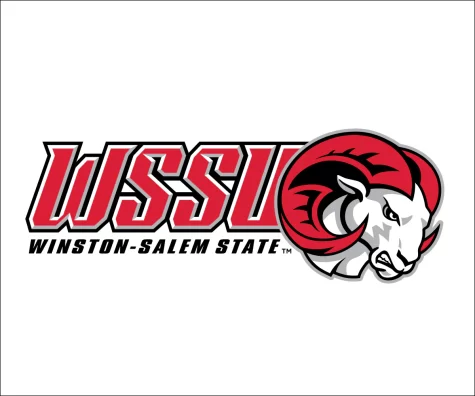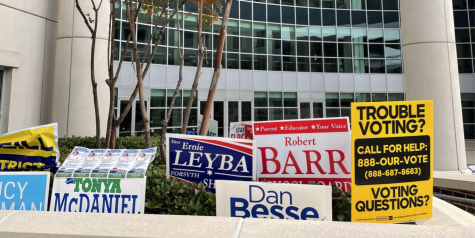By supporting urban agriculture, Island CultureZ offers a grassroots path forward for Winston-Salem communities
Mr. Banner and his non-profit, Island CultureZ, are re-writing the narrative surrounding food-insecurity among Black communities in Winston-Salem

Photo Courtesy: https://scalawagmagazine.org/2020/04/black-farmers-forsyth-county/
December 1, 2020
As a life-long native of Winston-Salem, Michael Banner remembers a time when mom-and-pop shops dotted almost every block of the neighborhood. For the 46-year-old, it’s disheartening, but not surprising, to see just how few of these shops remain.
The dwindling presence of stores like these are a symptom of a larger movement, one that has been disenfranchising and marginalizing the African American population of Winston-Salem for decades. Wealth has been flowing out of these communities for a long time, creating conditions that have led to tremendous poverty and to Winston-Salem ranking among the most food-insecure regions in the country.
Island CultureZ, Banner’s lifework, is reversing these trends, the right way.
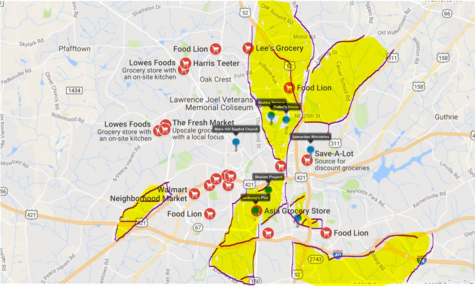
Will Zimmerman: What is Island CultureZ?
Michael Banner: Island CultureZ is a non-profit wealth-building organization, and our primary goal is to build wealth in the community through agriculture. We reclaim plots that were left abandoned by landlords or absentee tenants and make them productive parts of the community by turning them into urban agricultural spaces.
WZ: Island CultureZ is a very interesting name, where did it come from?
MB: The people in our communities feel apart from the progression of the city, like they are surrounded by water, so we define them as islands. What [Island CultureZ does] is connect those islands through the common bonds of economic mobility.
WZ: How is Island CultureZ able to secure the land that becomes these urban agricultural spaces?
MB: First, it’s important to understand that there’s been a large decline in Black-owned land and businesses in this community over time. [To secure] a lot of this land, we have to wrestle [it] back from the city and from the absentee landlords using the Urban Agricultural Ordinance. In large part, they own the community and just rent it out to us.
WZ: Why is it important to own the land?
MB: Building equity in the community really starts with land ownership. Having ownership of the land is like building a wall against outside interests that just want to come in and penetrate our community-based aspects of stewardship. [Being able to buy back the land] decreases the chances of someone coming in and exploiting our lack of ownership within the community, it decreases our chances of being gentrified, [and] it allows people to create their own style of social equity.
WZ: And where does urban farming come into the equation?
MB: Once people own the land and begin to farm it, they can harvest the fruits of their labor. They might eat a lot of what they grow, but if they have extra produce, we organize hyper-local farmer’s markets where they can sell their produce to their neighbors.
WZ: What makes a farmer’s market ‘hyper-local’?
MB: We are trying to make [our markets] an experience the whole community can buy into. We only allow vendors who [live and] grow their produce within five miles of the site to set up stands. We had a total of eight vendors this year, during version one, but we’re growing. As more land is being secured, and as people are becoming more intentional and working more cooperatively, we will be able to fill up to 16 spots worth of farmers at the Liberty Street Farmer’s Market alone.
WZ: Given that much of the population doesn’t have the money for healthy and fresh food, how can residents afford to shop at a farmer’s market?
MB: Our markets are equipped with EBT-snap, so people can go right in with their food stamp cards and get something grown right there in the neighborhood … [Plus], this way, the money is staying in the community.
WZ: Why is it important for money to stay in the community?
MB: If the money never circulates out of the community, it gains staying-power and helps our economy grow. Then, we’re starting to get some of that FoodLion money, some of that corporate money. We want to be able to pick up where they decline at.
WZ: How is the work of Island CultureZ changing the community landscape?
MB: A lot of the time, people look at communities like ours with a poverty-lens and look at what we don’t have. They’ll say, ‘they don’t have this amount of income or this many college degrees.’ All these abandoned properties are a blight on our neighborhood. But we’re changing the narrative. Now, you walk through, and you start seeing farmer’s markets, you start seeing useful land, that changes people’s perspectives. Even just by beautifying the community, it’s going to have those ripple-effects … That is why we do it all, right here, in the community.
WZ: For decades, the story of much of Winston-Salem’s Black population has revolved around a history of institutionalized racism and subsequently, widespread poverty. Can Island CultureZ affect change on this broad scale?
MB: Not alone … [But], what is important to me is that we’re changing the way people see land here, the way food systems work, here, in our city. The more people that join in on this wave, that join our efforts to build self-resilient communities, the better we can create something that is undeniable. And people around here are [starting to] see that now. For a long time, [this city] refused to see things our way, the people that held the power were not prepared to compromise their values. [Now], we have gotten to a point [where] we have a serious critical mass that has to be acknowledged, [that] demands to be respected.
WZ: So, what comes next?
MB: It’s going to be interesting, that’s for sure. They’ve been knocking us down for a long time, trying to make us illegitimate by saying ‘oh yeah they just talk a lot, but no one’s buying their stuff.’ But times are changing, and I know it’s getting scary for them, seeing us get some attention, get some legitimacy … We have our 501-c3 status, and we’ve achieved a few other things over the past couple of years, too. Now, we’re coming from a whole different place of negotiation. I don’t think they are ready for that.
This interview has been edited and condensed for clarity.


